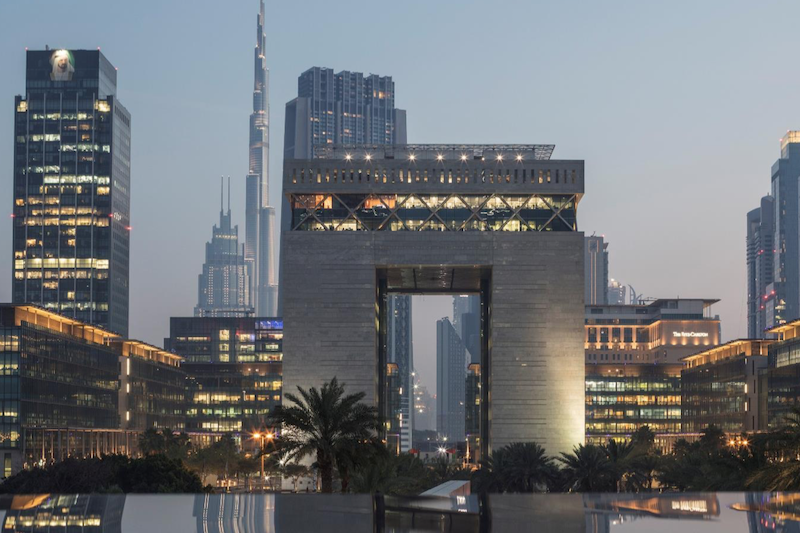By Stuart Walker
|
The Authors
Stuart Walker Stuart’s primary practice includes employment, financial services regulation, corporate finance and mergers and acquisitions. He leads the field in advising parties during Dubai Financial Services Authority (DFSA) investigations and was instructed by the first authorised firm to be fined by the DFSA. He has since gone on to advise in connection with a significant number of DFSA investigations. Stuart was admitted as a solicitor in England & Wales in 2001 and moved to Dubai in 2003. |
The DIFC has provided slightly more clarity as to how UAE Cabinet Decision 31 of 2019 (the Economic Substance Regulations, or ESR) will apply within Dubai’s financial free zone. Helpful as the guidance is, significant questions remain.
The DIFC held a presentation on 17 December to discuss the Economic Substance Regulations. The first point of note was that all businesses in the DIFC must file an ESR notification by 31 March 2020. The content of this notification is set out in the Economic Substance Regulations themselves. There are three components to the notification.
- The business must declare whether or not it is engaged in one of the nine “Related Activities” set out in the Economic Substance Regulations;
- If it does conduct one of the Related Activities, the business must indicate whether any of its income from such activity is subject to any sort of tax outside of the UAE; and
- The dates of the business’s financial year.
The notification requirement will apply to financial service providers regulated by the DFSA, and also to all other non- regulated businesses, including DIFC branches of businesses that may be making similar notifications outside of the DIFC. Any entity registered with the DIFC’s Registrar of Companies will need to file these notifications. The format of the notification has yet to be decided, but it was suggested that the UAE’s Ministry of Finance (being the “Competent Authority” pursuant to the Economic Substance Regulations) will be standardizing the forms for ESR notifications and reports.
The second point of note is the DIFC’s Registrar of Companies will be the “Regulatory Authority” in the DIFC. Expectations (based on the wording of Cabinet Decision 58 of 2019) were that the DFSA would be the Regulatory Authority in the DIFC. There was a suggestion that the Registrar of Companies may delegate some of its responsibilities to the DFSA, but for the time being it appears that the Registrar will fulfill this important role. (It is the Regulatory Authority which decides if a business has met the economic substance requirements, and if not, reports the business to the Ministry of Finance.)
The DIFC made it very clear in their presentation that they would be adopting a “substance over form” approach when considering whether a business was conducting one or more of the Related Activities. This was a welcome clarification, as some market commentators had been suggesting that businesses would only be caught by the Economic Substance Regulations if their commercial license specifically mentioned one (or more) of the nine Related Activities.
The presentation ended with a Q&A session. This revealed that significant areas of uncertainty and concern remain. Of particular concern to businesses in the DIFC was whether all financial service providers would be considered to be undertaking a Related Activity. There was a suggestion that the DIFC and the DFSA would jointly host a further presentation in the new year to answer some of those questions.
Practical next steps
All businesses in the DIFC should diarise 31 March 2020 and note their obligation to file a notification with the Registrar of Companies by that date. In order to make that notification they will need to determine if they are undertaking a Related Activity. If they are undertaking a Related Activity, and deriving income from it, they will then need to file an ESR report. The ESR report must demonstrate that they meet the economic substance thresholds. Failure to meet these thresholds may result in significant fines and/or suspension of licenses. Any business with concerns about meeting such thresholds will have several months to take remedial action, as most businesses conducting a Related Activity in the DIFC will have until the end of 2020 before they need to make their first ESR report. Afridi & Angell is able to advise clients on the Economic Substance Regulations, although general uncertainty remains regarding the approach the Registrar of Companies will take when considering (a) the scope of the specific Related Activities and (b) what needs to be done to meet the economic substance thresholds. ■
| Afridi & Angell
Founded in 1975, Afridi & Angell is a full-service UAE law firm in its fifth decade at the forefront of the legal community. From the beginning, our hallmarks have been a commitment to quality, unsurpassed knowledge of the law and the legal environment, and crafting of innovative business solutions. Licensed in the three largest Emirates of Abu Dhabi, Dubai and Sharjah as well as the Dubai International Financial Centre, our practice areas include banking and finance; corporate and commercial law; arbitration and litigation; construction; real estate; infrastructure projects; energy; project finance; maritime (wet and dry); and employment. We advise local, regional and global clients ranging in size and sophistication from start-ups, sole proprietorships, family-owned businesses, entrepreneurs and investors to some of the world’s largest public and private companies, governments and quasi- government institutions. We attract and retain clients with our dedication to practical guidance focused on their business needs supported by decades of experience here in our home jurisdiction, the UAE. |
| Afridi & Angell’s inBrief provides a brief overview and commentary on recent legal announcements and developments. Comments and opinions contained herein are general information only. They should not be regarded or relied upon as legal advice.
© 2019, Afridi & Angell |



